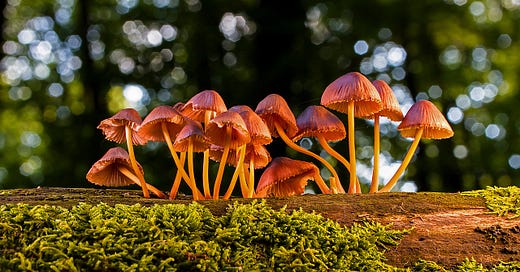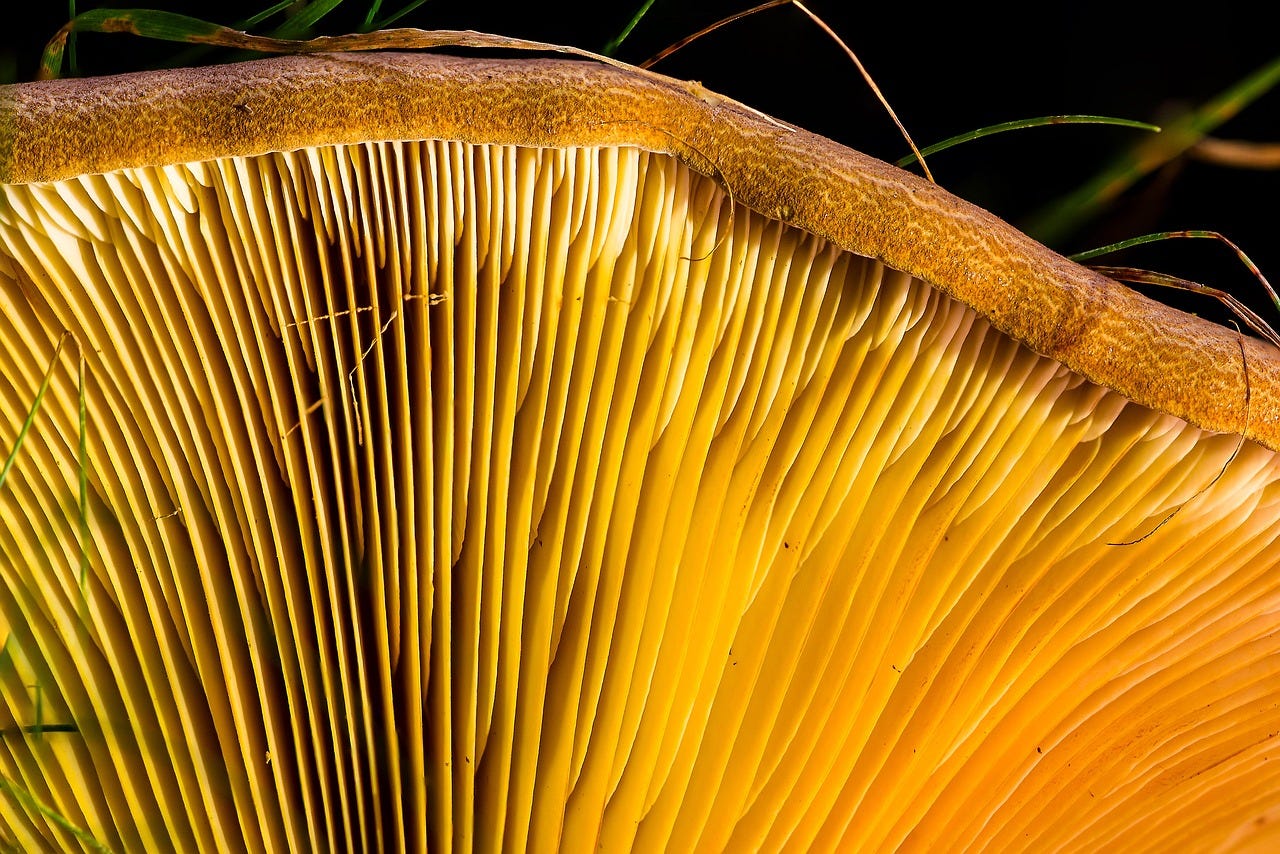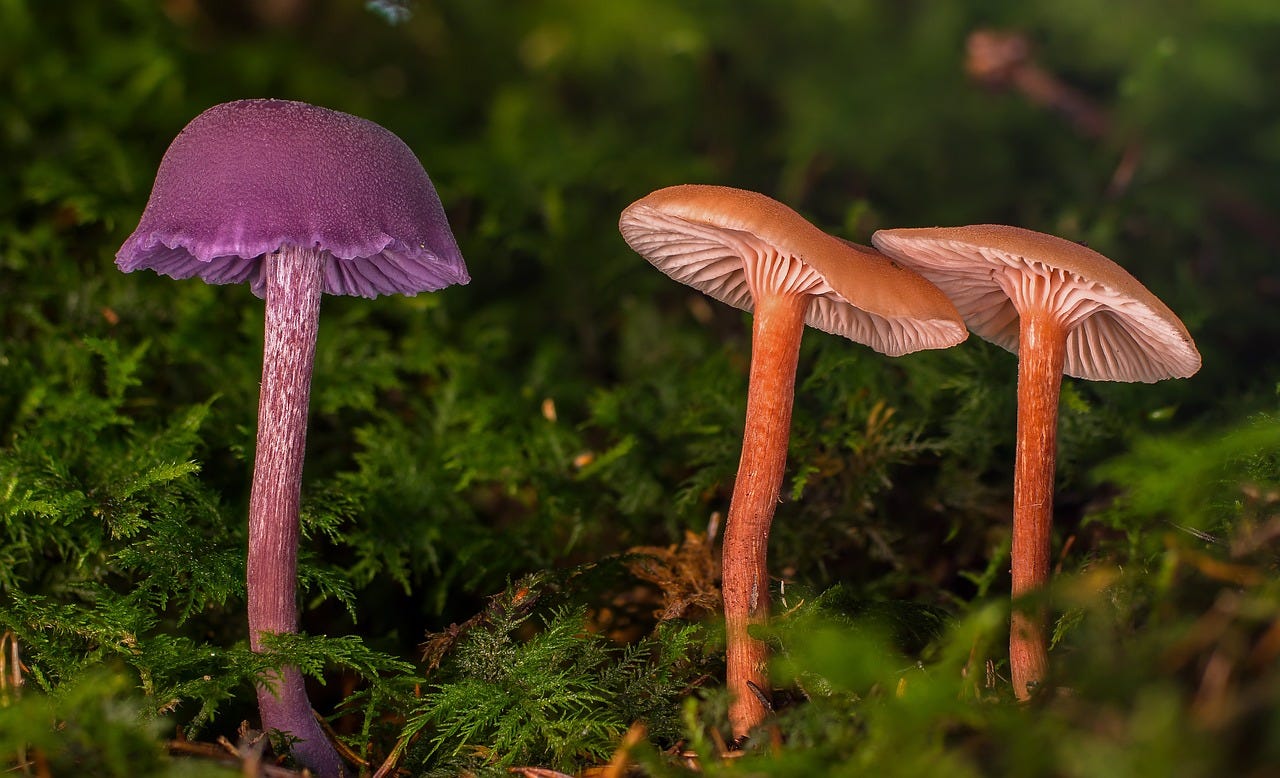Our future with ... shrooms
Mushrooms ... you can pick them, you can eat them, you can use them as meat substitutes, you can go on spiritual journeys with them ...
… and they can also harm and downright kill you ... but it looks like we're only just beginning to discover the true powers of the world of fungi.
My Mom suffered from dementia and with that came concerns, downright fears, of the curse being in the genes. So when a friend mentioned American mycologist (mycology = a branch of biology concerned with the study of fungi) Paul Stamets, his TED Talks and a possibly Alzheimer's-counteracting fungi called Lion's Mane, of course I was interested in learning more.
Fungi first appeared around 1.5 billion years ago - we showed up way, way later. Get this: “Researchers have concluded that animals and fungi share a common evolutionary history and that their limb of the genealogical tree branched away from plants perhaps 1.1 billion years ago.” Later in the tree of life we branched away from fungi and did our own thing.
Paul Stamets is an advocate for mushrooms and their potential. He holds nine patents connected with the antiviral, pesticidal and remedial properties of mushrooms. A key research area of his is this thing called mycelium that could be explained like the growing vegetative system of mushrooms - imagine something like the internet underground - mushroom-connectivity. As Stamets says, “Nature has intelligence.” Once you start reading into mushrooms, it certainly gets interesting.
There’s no doubt that fungi are powerful - just think of penicillin, or, on the deadly side - these here! I have a feeling that, over the coming years, there’ll be an increasing focus on the potential of the many mushroom properties. Pharma’s paying close attention to what indigenous people have used for centuries and hence, bioprospecting/biopiracy’s happening.
And, who knew, one of Silicon Valley’s giants is getting on board of the mushroom train, too! Peter Thiel (PayPal, Ebay, FB, you name it!) is invested in a company called Compass that researches the benefits of magic mushrooms. I have a feeling he wouldn’t be interested if he didn’t see potential. What they know so far: Psilocybin, the naturally occurring psychedelic compound found in 200 species of mushrooms is known to work as a substitute of serotonin (well-being and happiness neurotransmitter) and it can, apparently, help actually reset certain groves in the brain that have to do with depression. Fascinating Financial Times article here about the planned trials in the UK.
At first glance, it appears ludicrous that magic mushrooms could offer a salvation to depression - that mushrooms could be curing a lot of what ails humanity ... right? But after you read into it, after you think penicillin, after you consider the tree of life and our connection, after you learn about the research and the many properties of mushrooms ... makes me think that we all should branch out into the mushroom business! If even half of the mushroom potential is realized - then it will make the world massively more resilient. Sounds like I’m tripping, right?! Do we have psychedelically fascinating times ahead of us? Looks like that could well happen!
PS: Interesting titbit in the afore-linked article - they write, “Alfred Hofmann, the Swiss scientist who first synthesised LSD in 1938, produced psilocybin for Sandoz, now part of Novartis, from the late 1950s until the mid 1960s, when governments began to make psychedelic substances illegal.” Research was stopped, sentiments were changed and progress was frozen ... but just as mushrooms will always find a way to grow, so does science, and I’m very much interested in seeing the next steps in humanity’s mushroom journey.







